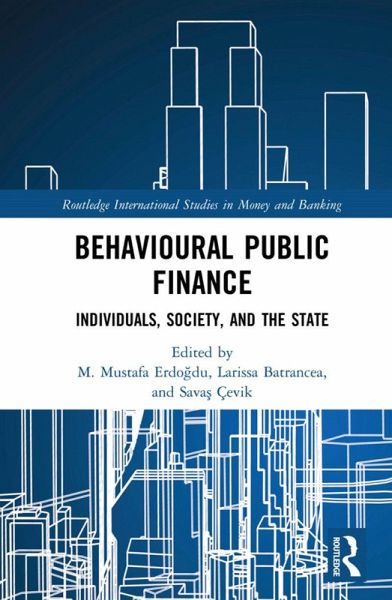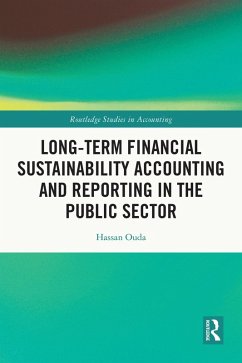
Behavioural Public Finance (eBook, ePUB)
Individuals, Society, and the State
Redaktion: Erdogdu, M. Mustafa; Çevik, Savas; Batrancea, Larissa
Versandkostenfrei!
Sofort per Download lieferbar
41,95 €
inkl. MwSt.
Weitere Ausgaben:

PAYBACK Punkte
21 °P sammeln!
This book tackles political, social, and behavioural aspects of public finance and fiscal exchange. The book combines conventional approaches toward public finance with new developments in economics such as political governance, social and individual aspects of economic behaviour. It colligates public finance and behavioural economics and gathers original contributions within the emerging field of behavioural public finance.The book addresses public finance topics by incorporating political, social, and behavioural aspects of economic decision-making, assuming the tax relationship is shaped by...
This book tackles political, social, and behavioural aspects of public finance and fiscal exchange. The book combines conventional approaches toward public finance with new developments in economics such as political governance, social and individual aspects of economic behaviour. It colligates public finance and behavioural economics and gathers original contributions within the emerging field of behavioural public finance.
The book addresses public finance topics by incorporating political, social, and behavioural aspects of economic decision-making, assuming the tax relationship is shaped by three dimensions of decision-making. Thus, it aims not only to reflect the interdisciplinary nature of public finance by bringing together scholars from various disciplines but also to examine public finance through the lens of political, social, and behavioural aspects. The book scrutinizes the relationship between political institutions, governance types, and public finance; it investigates the impact of social context, social capital, and societal cooperation on public finance; it explores behavioural biases of individual fiscal preferences.
This book is of interest to scholars, policymakers, tax professionals, business professionals, financers, university students, and researchers in the fields of public policy and economics.
The book addresses public finance topics by incorporating political, social, and behavioural aspects of economic decision-making, assuming the tax relationship is shaped by three dimensions of decision-making. Thus, it aims not only to reflect the interdisciplinary nature of public finance by bringing together scholars from various disciplines but also to examine public finance through the lens of political, social, and behavioural aspects. The book scrutinizes the relationship between political institutions, governance types, and public finance; it investigates the impact of social context, social capital, and societal cooperation on public finance; it explores behavioural biases of individual fiscal preferences.
This book is of interest to scholars, policymakers, tax professionals, business professionals, financers, university students, and researchers in the fields of public policy and economics.
Dieser Download kann aus rechtlichen Gründen nur mit Rechnungsadresse in A, B, BG, CY, CZ, D, DK, EW, E, FIN, F, GR, HR, H, IRL, I, LT, L, LR, M, NL, PL, P, R, S, SLO, SK ausgeliefert werden.













